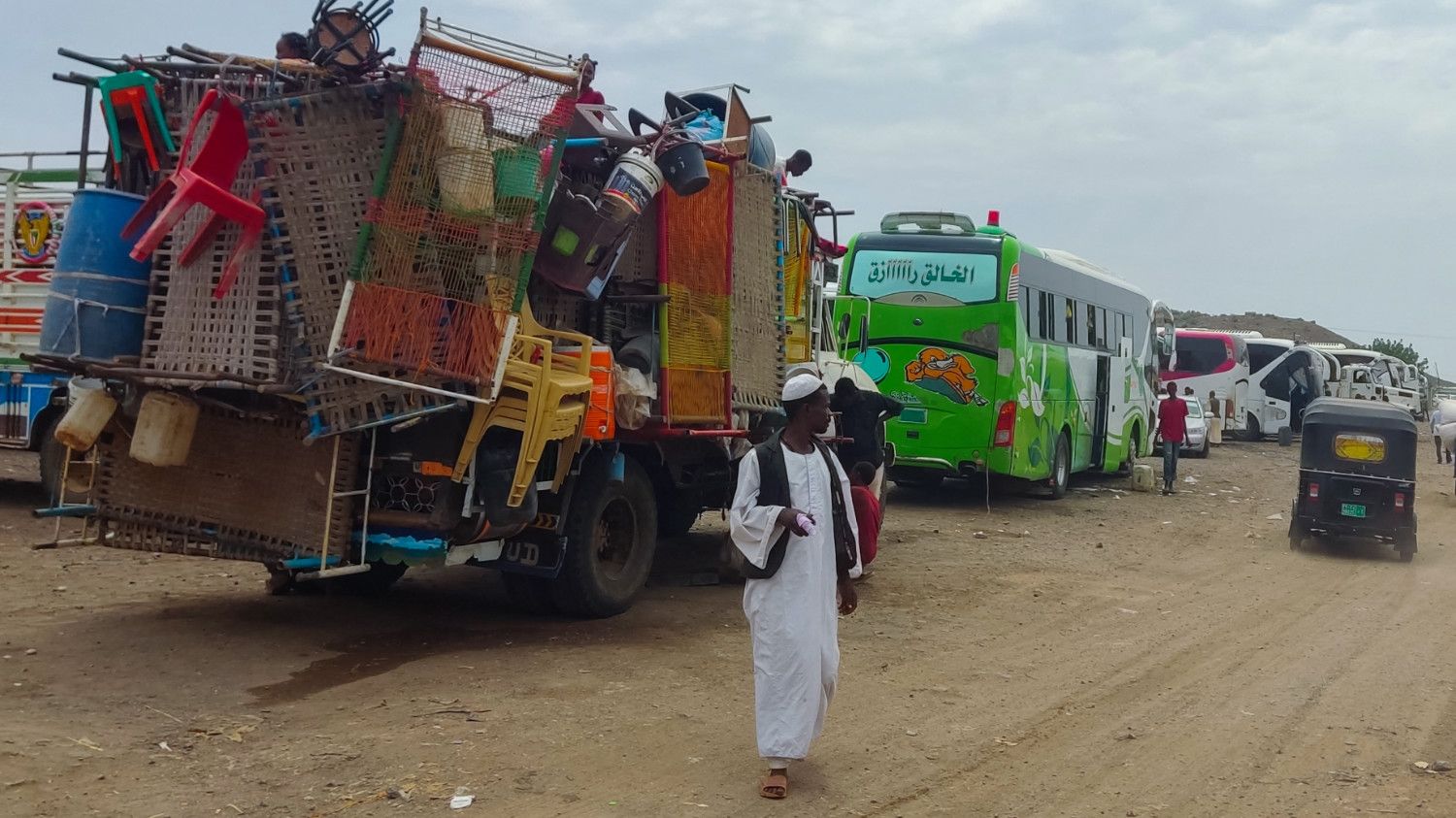Trigger Warning and Disclaimer: the content that you are about to read contains graphic and sensitive experiences. The opinions and opinions expressed in this piece solely reflect the author's views and not Andariya's. Reader discretion is advised. Read our full editorial notice here.
Upon hearing about the people who were fleeing Sinja due to the Rapid Support Forces' recent raid into the city, I wanted to tell the story of how my family and I were displaced from Kosti in the White Nile after the Rapid Support Forces stormed Al-Gezira State. Panic ensued when it was realized that the war were advancing from Khartoum and Western states towards the other safe cities and states in Sudan.
UN says 55,000 flee Sinja as RSF seizes the city. Source: Middle East Eye
Displacement Journey 2.0
Do all Sudanese have to experience displacement to feel safe? Should we be displaced and leave what we once called our safe haven because the leaders disagreed? Should we leave our homelands to them and migrate in search of the security we have lost? Should we, should we, and should we? These questions linger in the mind of every Sudanese but unfortunately, no one has the answer to them!
We had heard about the forced displacement and its bitterness from those who were dislodged from Khartoum, but we had not understood and experienced the bitter feeling that accompanies it. The bitter pain, heartbreak and fear of the unknown fate that our beloved country and its people faced seemed far until we experienced it firsthand.
My family and I were forced to flee from the city of Kosti in the White Nile state where we had been experiencing a sense of safety during the early days of the brutal clashes between the Sudanese Armed Forces and the Rapid Support Forces. At first, the fighting was limited to specific states, Khartoum in the centre and Darfur states in the western parts.
The other states were peacefully living their lives and conducting their daily routine as before the war, except for some changes such as the increase in population density and the establishment of many ventures and changes due to the newcomers who came with their unique ideas, that resulted in cities and villages flourishing and breathed a new life into them after they were inhabited by monotony.
The new inhabitants were getting used to the new life that was destined for them after they were displaced from their homes and lost their possessions such as houses, cars, furniture, electrical appliances, and even their clothes because of the looting that affected every house in Khartoum. Despite that, they accepted their fate, which had impacted all residents of Khartoum. As the Sudanese proverb says, "death of a horde is a wedding," they accepted their new reality and set their sights towards the future.
After the RSF militia effortlessly took over the city of Wad Madani and the news that the army lost grip of the city to the militia without resistance, it spread terror in the hearts of people everywhere. Without a protector or defender, we were vulnerable to the militia and could lose our property, security and stability.
Those who could afford to travel went to Port Sudan, which holds the only international airport in Sudan after the destruction of Khartoum International Airport in the capital, Those who could not afford to cross the borders were displaced to safer cities in the north and east. These cities have become a destination for those looking for safety, I won’t say stability because the panic in people's hearts prevents them from feeling the luxury of it.
Looking for a Way Out
We left Kosti towards Sennar with our elderly grandmother, not certain if she would survive the hectic journey. The road ahead with a distance is approximately 1139 km or 701 miles was very long. Usually, we would have used the route that goes through Wad Madani but after the attack, it became impossible to take that road. The only alternative was another road which was longer, more difficult and more dangerous, but we had no other option.
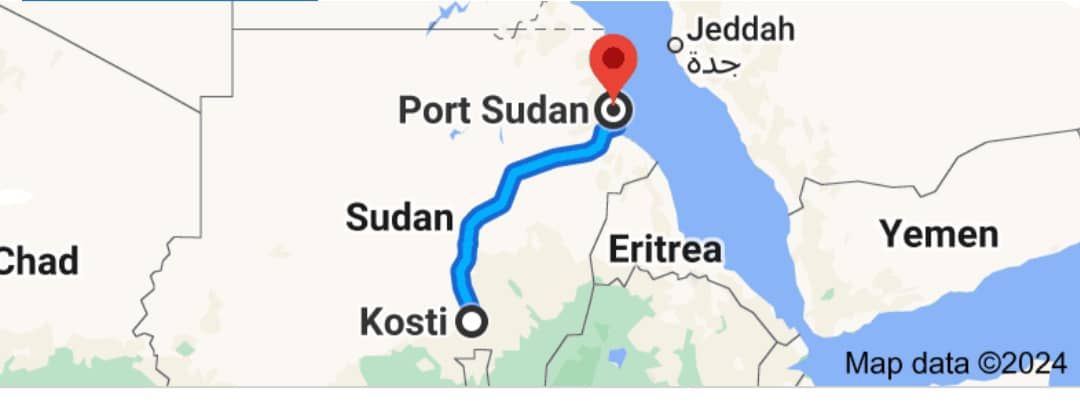
A Map showing the distance from Kosti to Port Sudan before the attack on Madani
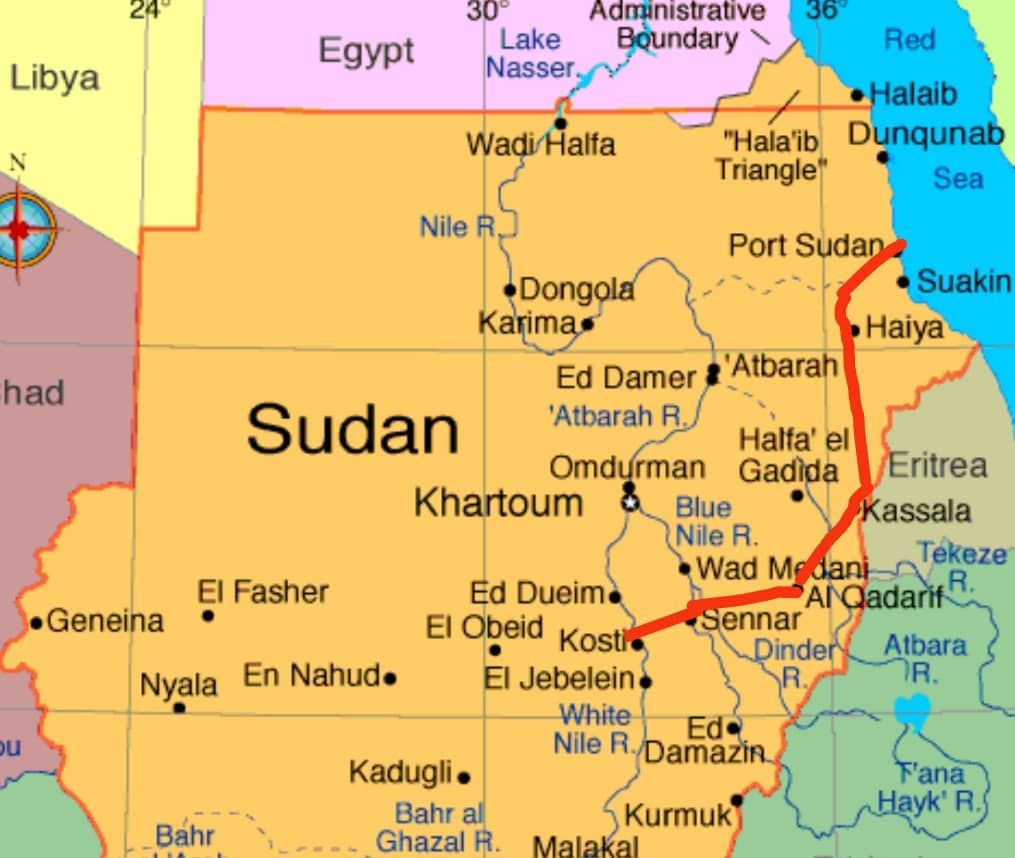
A Map showing the road we took after the attack on Madani
We left in 4 cars together with other people who wanted to get their families out of the panic to safety, and others who had a sick person. On the journey to the unknown were also people who wanted to get their cars out due to fear of theft because when the militias enter a city, they steal money, gold, and all kinds of cars.
As we progressed on the journey, we were joined by other cars creating a caravan of vehicles that made stopovers along the road stopping now and then along the way to chat, console each other, share food, and continue on the road again, with a sense of security that we are a group supporting each other.
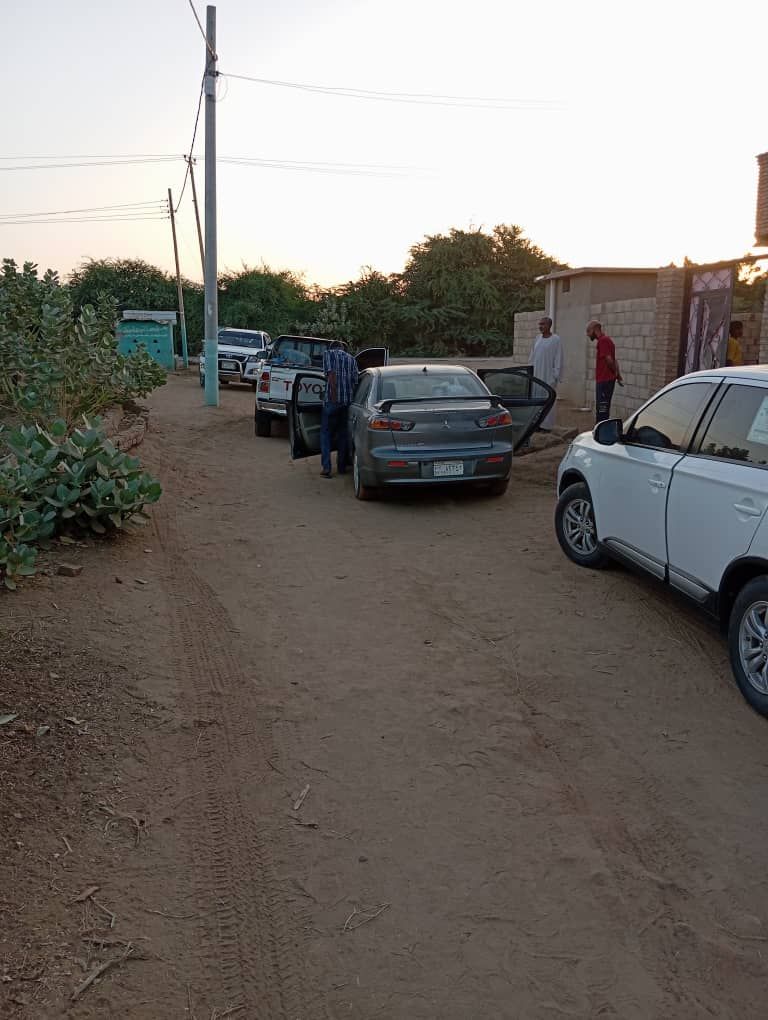
The caravan of cars getting ready to leave
In Sennar, the people there were in a state of panic just as in Kosti and Rabak. Some of them had surrendered their fate to God because they did not want to leave their homes, while others did not have the financial means. Other residents were stranded with no fuel, which had become scarce as more people were travelling to save their families, cars and other properties.
Some weak-minded people were filling their vehicle tanks and selling the fuel to the militia, forcing the army to order petrol stations to limit the daily quota to 1,000 litres. Petrol stations became overcrowded with small and large vehicles. Since the start of the war, every time we went through an ordeal, crisis merchants would appear, taking advantage of people's desperate needs. Those in need would buy fuel from merchants at an exorbitant fee, ten times more than its original price.
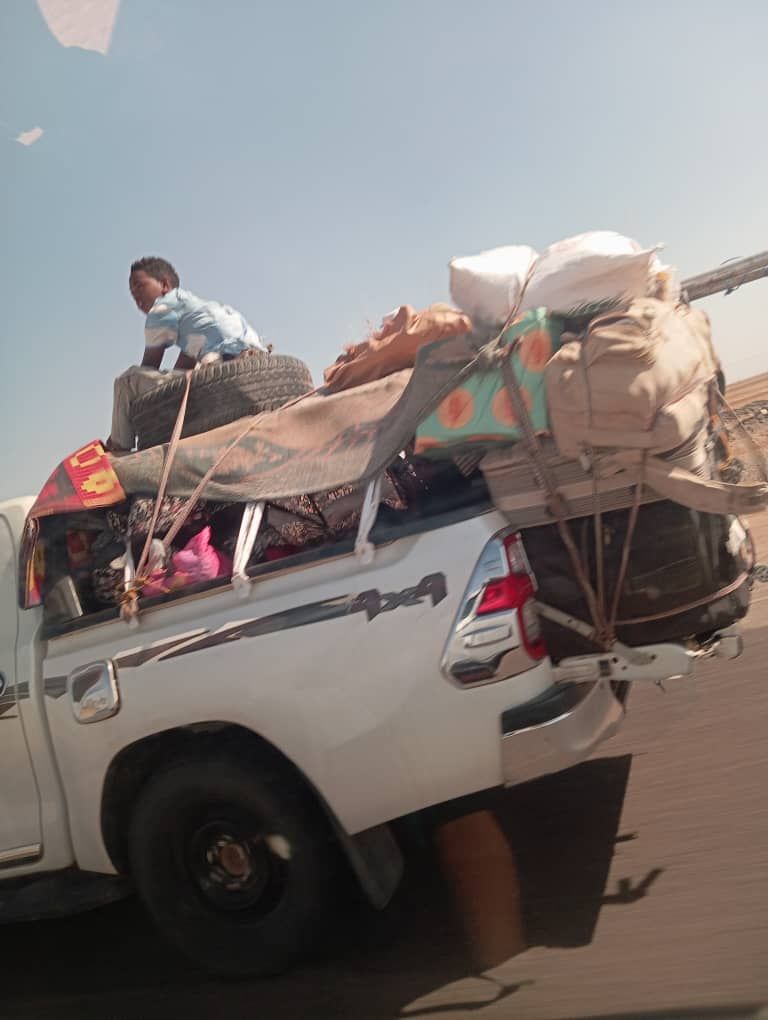
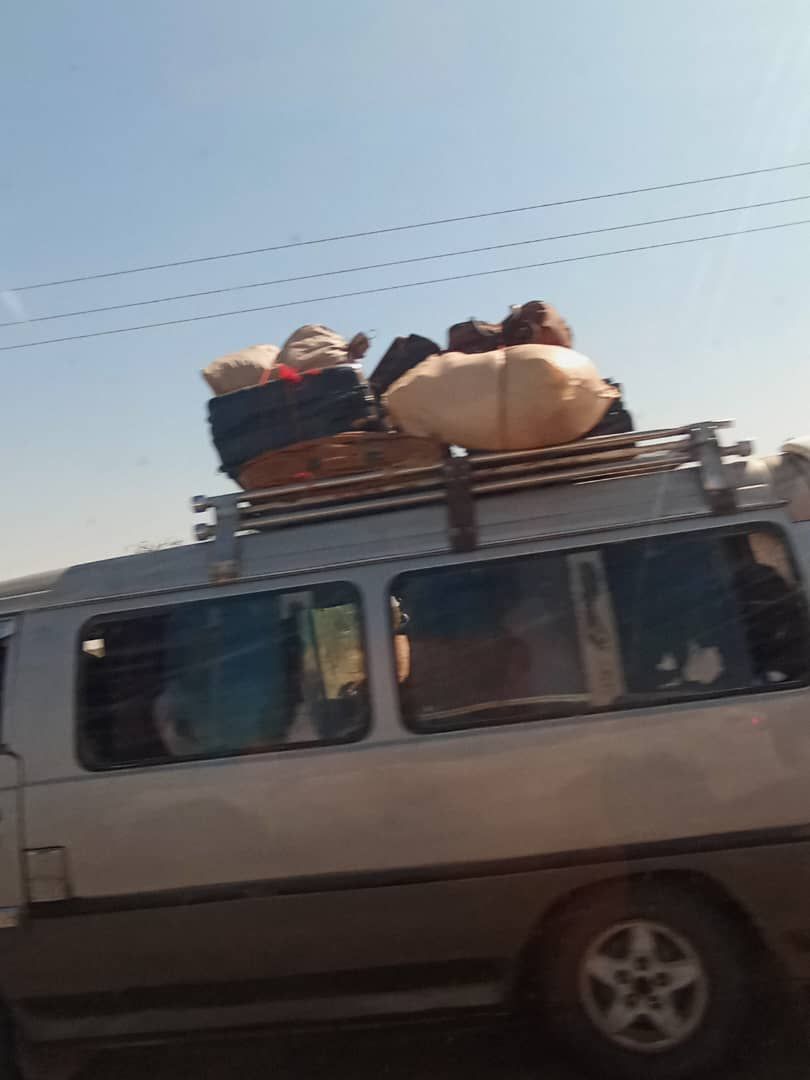
The travelling route was filled with these scenes, a journey to escape from places threatened by the arrival of the RSF militia. Source: Walaa Abdelati
A State of Fear with Limited Options
I could see the panic and anticipation in people's eyes, as every conversation was punctuated by questions. Will they come to us, will they arrive, and will they wreak havoc on the land as they have done in every place they have entered? They will steal our cars and loot our property, and its conclusion was "May God protect us from them".
We took the road to the east crossing the Sennar Bridge, heading to the locality of Dindar, the alternative road to the one that passes through Wad Medani. Only a quarter of the road was paved with asphalt, from which we took very rough dirty roads passing through agricultural fields. We were led by a seasoned driver we hired because he knows these roads very well.
The route had inadequate supplies and one of the escort cars had one of our relatives who was very sick and needed dialysis every 3 days. The relative together with his sons joined us from Sennar because there was no dialysis equipment and the hospitals were almost empty as doctors had left to take their families to safety or because the militia was targeting doctors to treat their wounded. For every bump and pothole that we hit along the road, we prayed to God to protect him.
The night darkened and we were still in the middle of nowhere, with no signs of life on those roads apart from harvested farmland that looked like barren and desolate lands. Only the sky, stars and blackness surrounded us from all sides.
When we reached an area called Abu Zakhm Reservoir, dozens of cars and buses were parked near the reservoir area for the night. An army soldier stopped us and asked us to stay overnight because the roads ahead were dangerous and armed bandits were hiding in the farms and attacking travelers. However, we could not stop because the patient was only two days overdue for dialysis. We continued our journey with apprehension and hope for the safety of the road.
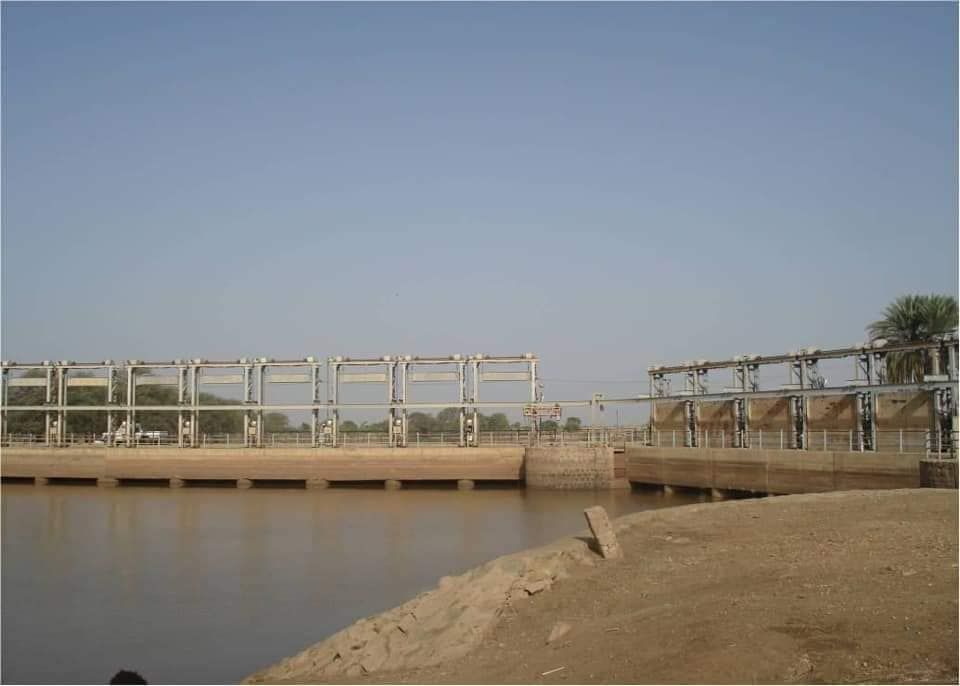
Abu Zakhem Reservoir. Source: Sudanese Ministry of Agriculture and Forestry Facebook page
We were on similar roads for a long time, sometimes seeing small villages, only to return to the seemingly endless stretch of road. Why does this road not end? Are we lost? Are we going to arrive or are we going to die here? What will happen to my children? What will happen to the patient in the other vehicle whose children are dying of helplessness? I wasn’t able to take my mind off these questions, thinking about the worst-case scenarios.
We arrived at a village, we were led to by a truck transporting goods whose driver had told us to follow him because he knew the roads well. We were sceptical not sure if he was being honest or leading us into an armed looting ambush.
After driving for half an hour, masked men on motorbikes started chasing us, asking us to stop on the pretext that they had a sick person with them and wanted us to take him to the nearest hospital. We almost believed them, but the driver of the truck, who was carrying a gun, fired warning shots in the air and they fled in the opposite direction.
Finally, after a lot of fear, anxiety, dark thoughts and stress, we saw the paved road that led us to Al Gedarif. We reached it after 8 hours of travelling through potholes and rough terrain, and only then did we breathe a sigh of relief.
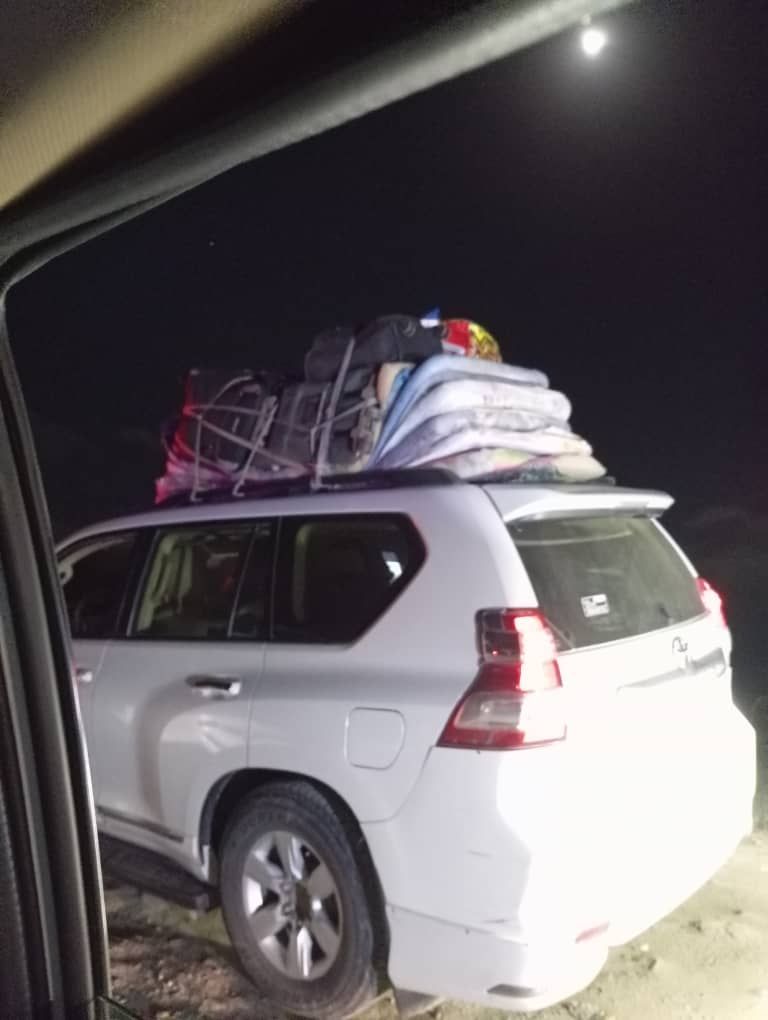
Finally the paved road finally and a companion
A Feeling of Calm and Grief in Al Gedaref
The city of Al Gedaref was quiet and slumbered due to the curfew imposed as we entered at 1 am. On every street, there was an army outpost, questioning new entrants about where they had come from, where they were headed, and what they were carrying with them. They asked to see our identification papers and proof of car ownership because the RSF militia were stealing cars from the cities they controlled and trying to sell them in other areas.
Anticipation was the order of the day in all Sudanese cities because there were threats of sleeper cells of RSF militia hiding in the city, disguising themselves as civilians. Some were suspected to be disguised as vegetable sellers or in cigarette stalls where they wait for their colleagues from outside the city and they will attack from the centre of the city to facilitate its control.
On the second day of our stay, the sick relative who was travelling with us went to the dialysis centre to receive his dialysis session, but they could not find the medicine he was supposed to take after the session. The hospital was empty without doctors and nurses except for one doctor in the emergency room who refused to leave, saying he was their only hope of receiving medical care.
The only remaining doctor was busy attending to the many patients as our relative's son begged him to examine his father and provide him with the necessary medical care. The doctor tried to resuscitate him, but his body did not respond to any medicine or any attempt to resuscitate him. Half an hour later, the doctor pronounced him dead. His frail, sickly body could not bear all this hardship, so he gave up as if to say, "Continue on your way without me, this is my last stop."
He died in a city where he did not know anyone and had never visited before, but as the Quran says. "no person knows what he will earn tomorrow, nor does he know in which land he will die". "Our father was taken away from his home, where he lived all his life, to die a stranger in a city where no one knows him," his children were saying in anguish. The people of the area where we stayed came together to prepare what was needed to bury him, the youth of the neighborhood volunteered and went before the body to dig the grave, and all the neighbours gathered to console his children and participated in the burial ceremony.
We left the next day, heading from Al Gedaref to Kassala. Along the way, from the time we left Sennar, the residents of the villages along the roads had set up tents to prepare food, juice, tea and coffee for everyone who passed by. They would stand in the middle of the road holding white cloths to block the road and prevent cars and buses from advancing to provide them with supplies, even when they refused under the pretext of urgency they were quick to give water, food, friendly smiles and prayers for a safe journey.
When the night fell, they would beg us to get off the road and spend the night with them and continue the next morning. They impressed me, can you imagine them standing under the scorching sun, giving their money out of their belief in their role as Sudanese to help their afflicted brothers and sisters fleeing in search of safety? They made me proud to belong to these generous people who do not deserve what is happening to them, but every affliction has an end and no matter how the night is long, the morning must come.
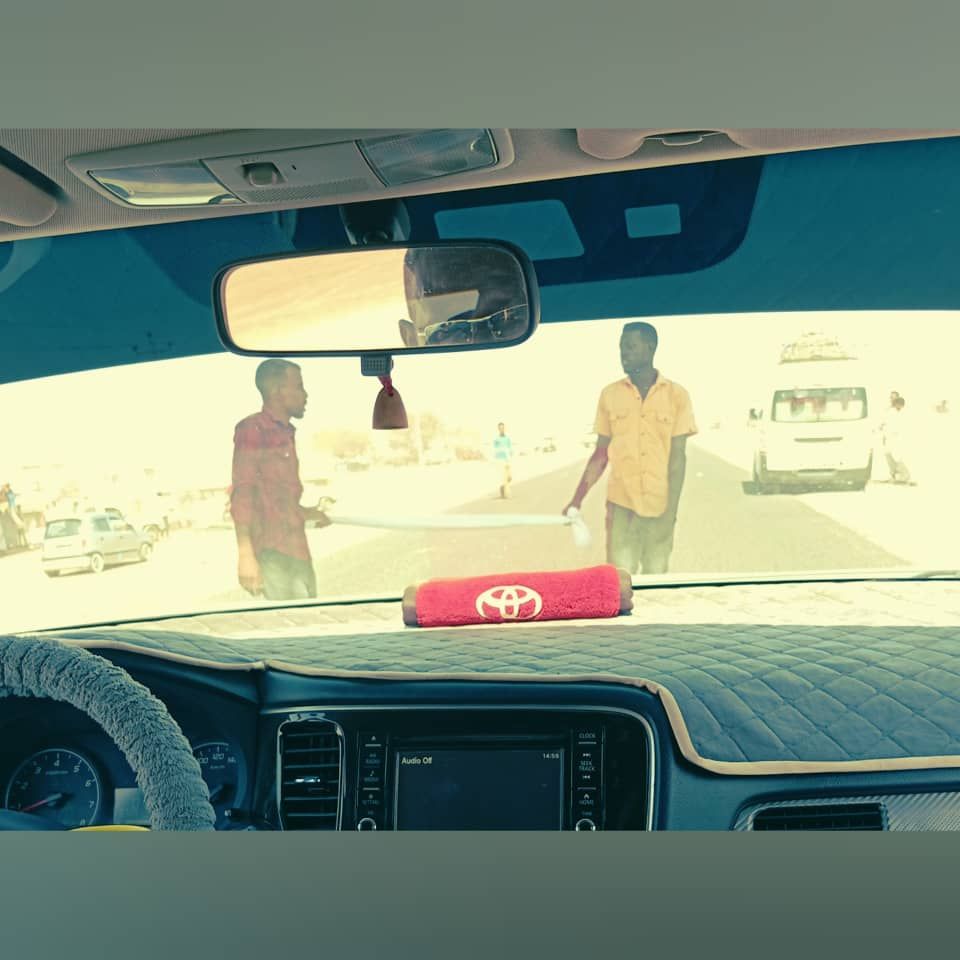
The villagers stop travellers by stretching white cloth to provide them with what they need.
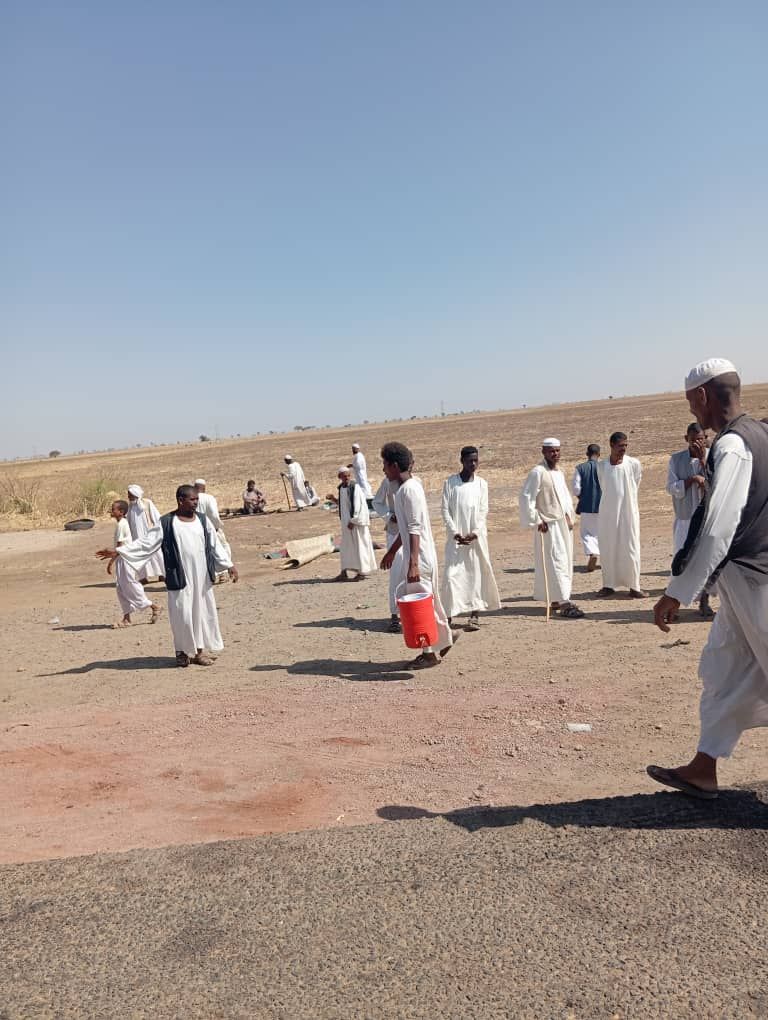
They are actively distributing supplies (zad) to travellers
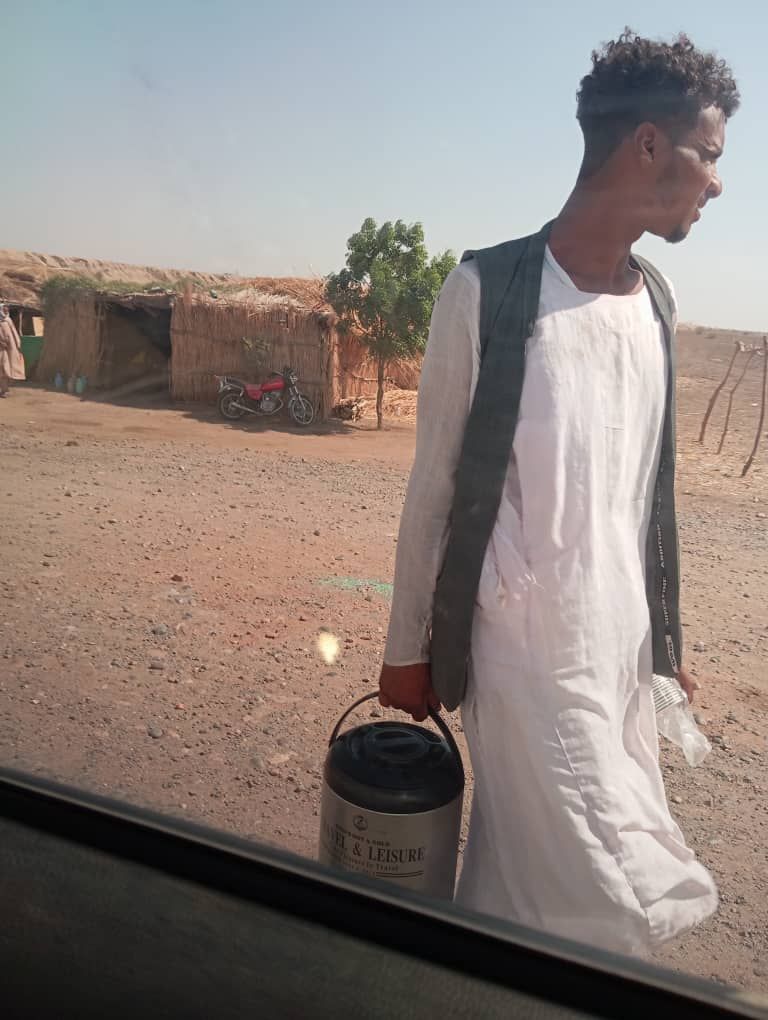
He jokingly offers us coffee to set the mood for travelling in a good mood
The distance from Al Gedaref to Kassala was short, however, the road to Port Sudan was long. Therefore the driver decided we spend the night in Kassala to continue early the next morning.
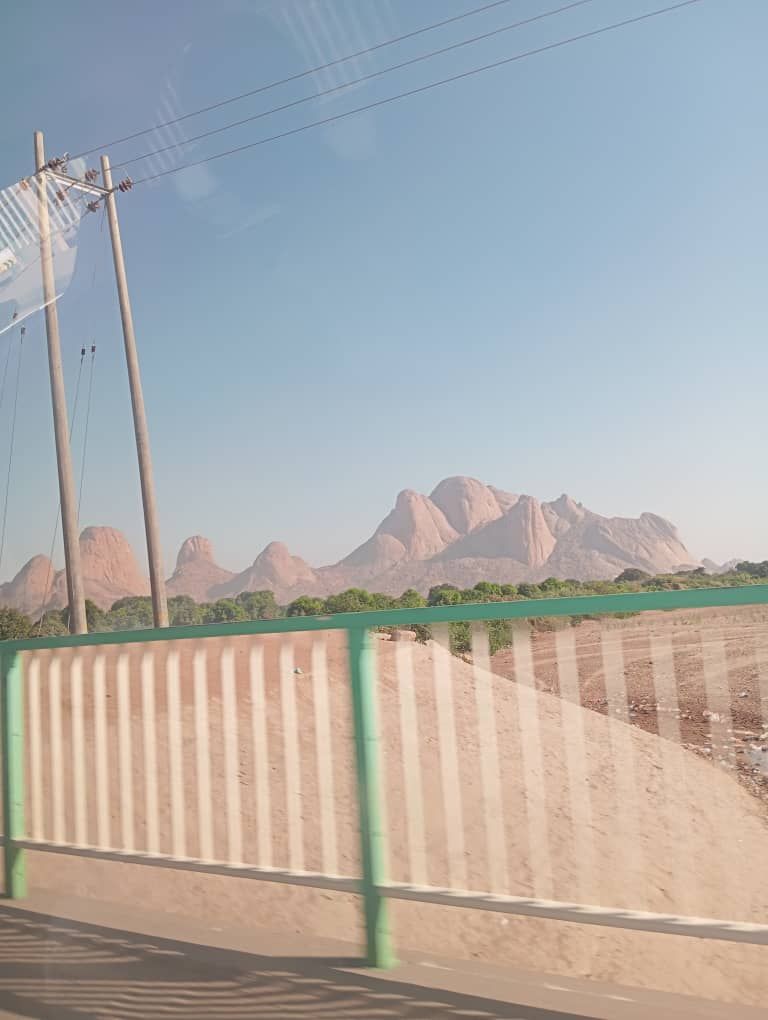
The appearance of the Taka Mountains, as we entered the outskirts of Kassala
Self Defense Mobilization in Kassala
Kassala was a beautiful, simple and uncluttered city that was very organised and clean. I never planned even in my wild dreams that I would go on such a journey. I saw cities with which I had no relationship apart from hearing about them. I previously thought that our country was vast and could accommodate everyone if hearts were aligned, but evil permeated us, scattered us and made us feel that our country is narrower than the eye of a needle.
In Kassala, we spent the night at our relatives' house. The family of the uncle who passed away was burdened with grief, so the neighbours came to console them. Even in that quiet city, the panic was obvious and they were expecting them, so like everyone else, those who could travel did so, and those who couldn't, waited for their unknown fate.
Therefore, the people of the city participated in the popular mobilization initiative that was proposed to citizens to defend themselves and their families from the evil of the RSF. Women and men of all ages volunteered to take up arms training every morning, the women who came to visit us told us.
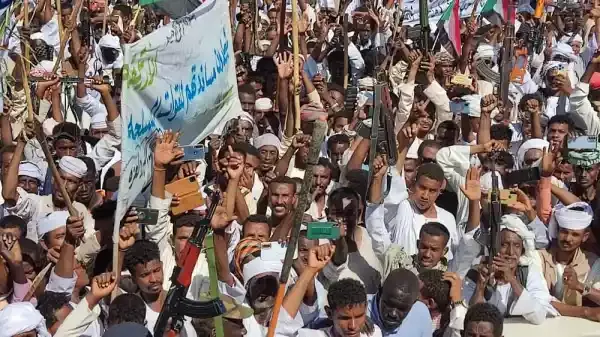
Kassala citizens take up arms in preparation to defend themselves. Source: Arab Press News
We woke up early to continue our journey. We loaded our belongings and prepared the cars in preparation for departure. We said goodbye to Kassala and its kind people, wishing us a safe and easy journey. When the sun came up, we were already on our way to Port Sudan, the capital of the Red Sea.
Everything was different in this part of Sudan from what we are used to in central Sudan. The appearance of the people of the East, their accent, clothes, hair, and the way they build their houses. Even the animals of that region were different, as the shapes and colours of the cows were different from what we are used to seeing in central Sudan. Also, the types of birds, where birds of prey abound and many things that make you feel that you are not in your usual environment and are very far from home.
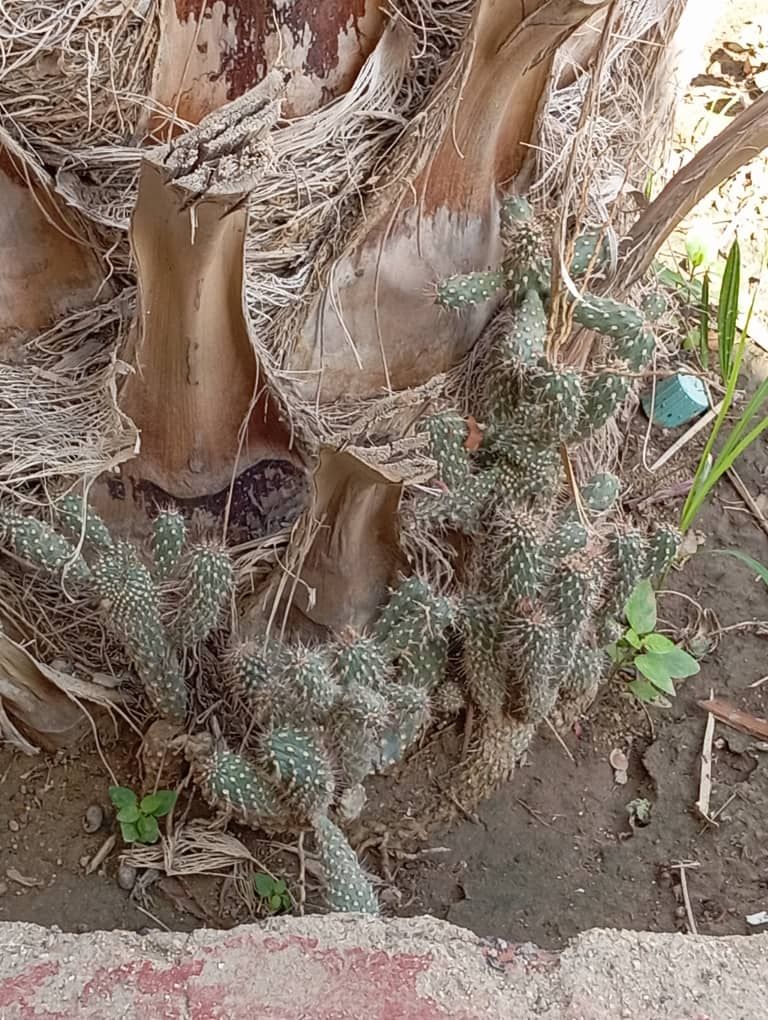
A type of cactus I saw for the first time
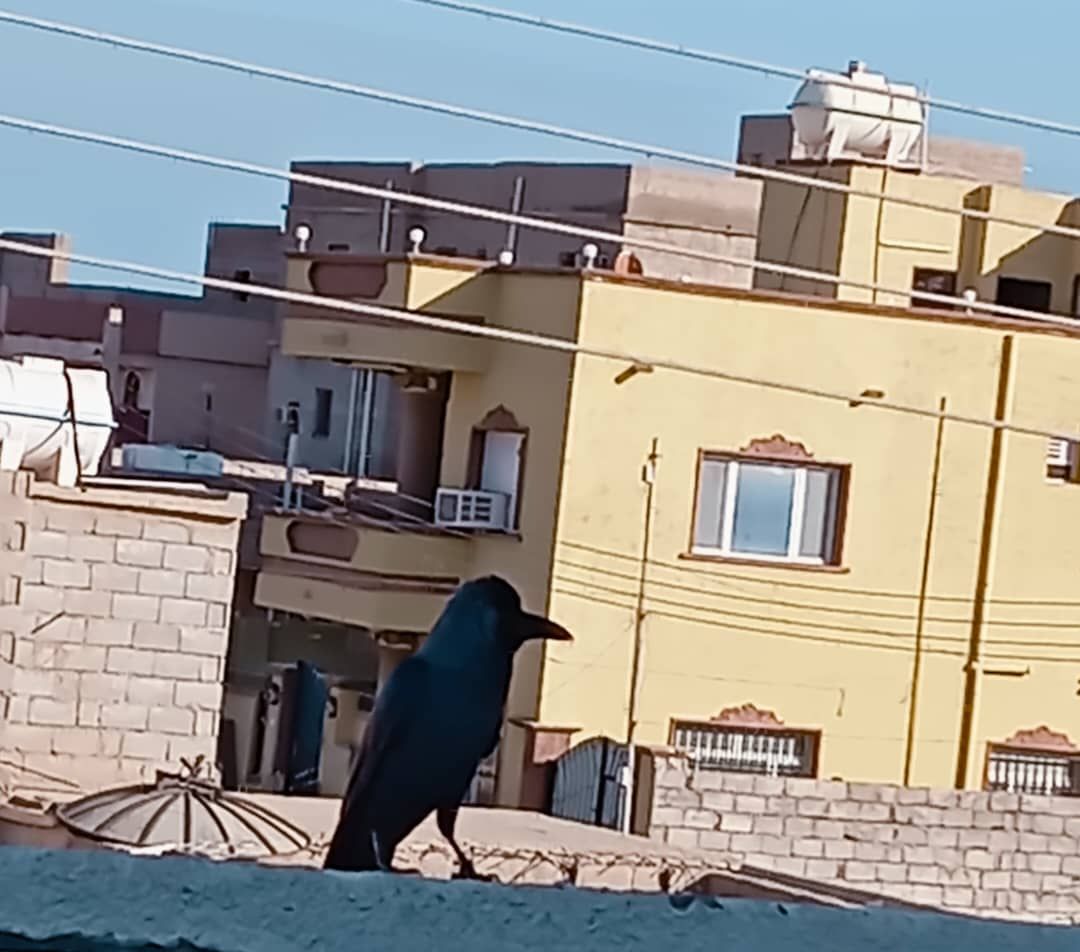
Crows are common in this part of Sudan
When we reached the Aqaba at the entrance to Port Sudan, the inspection procedures were very strict, so we spent two and a half hours waiting for our turn to cross. When we reached the first queue, the officer in charge told us that we were the 641st car to enter Port Sudan that day only.
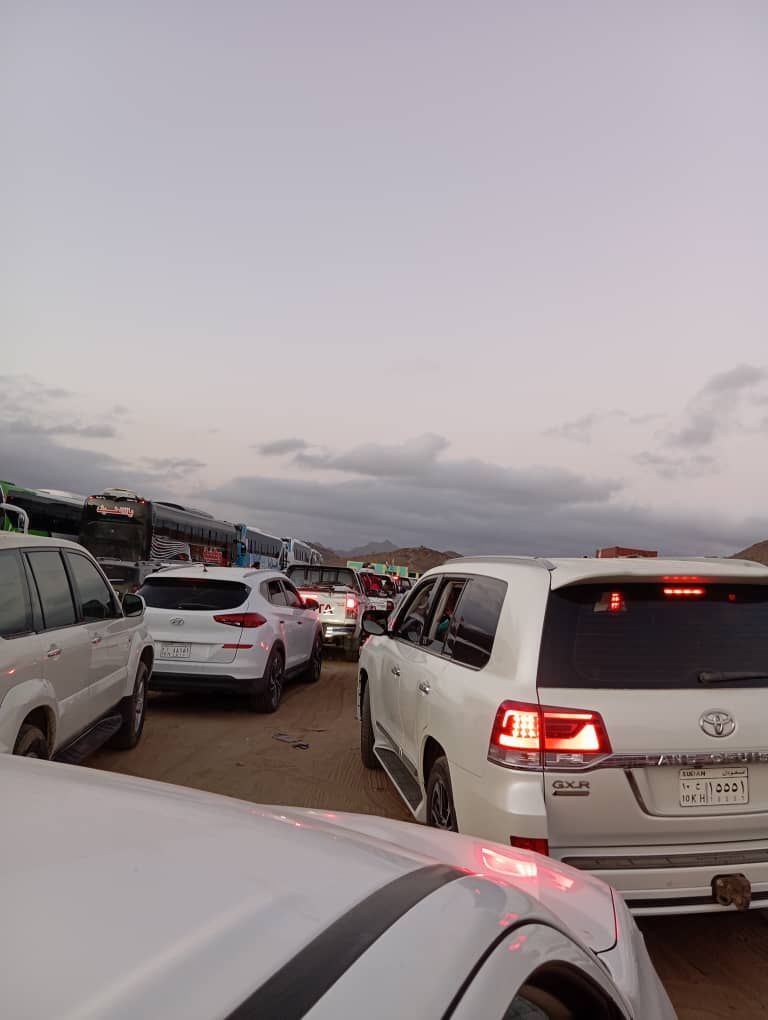
One of the longest waiting times I have ever experienced in my life
Port Sudan was peaceful, but it was overcrowded. It was a refuge for many of the first displaced people from Khartoum since the beginning of the war, and now it receives displaced people coming from Gezira state, including those who were displaced for the second time from Khartoum to Gezira and then to Port Sudan. The city is receiving thousands of displaced people, which has exacerbated the humanitarian crisis, worsened health services and overcrowded shelters in mosques, hospitals, schools and parks.
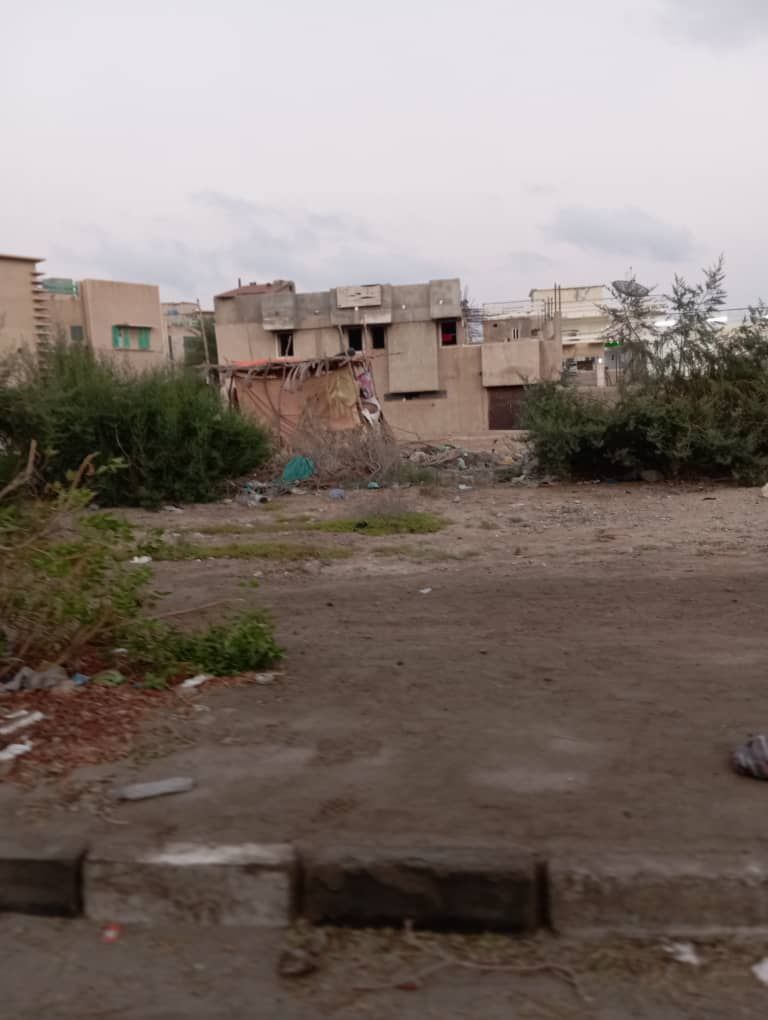
Some of the displaced are staying on the streets, building houses made of cardboard and sticks.
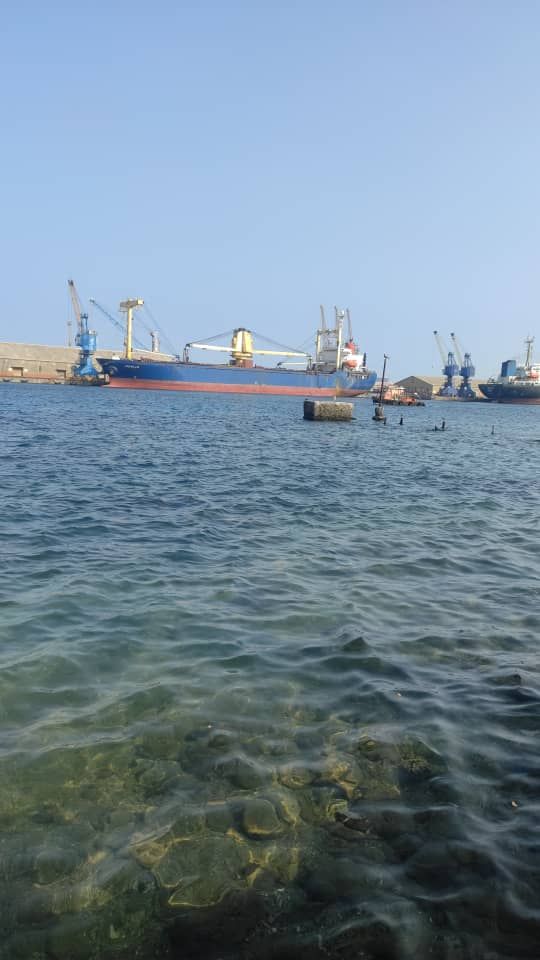
The Red Sea Beach
Rental prices in Port Sudan were insane and food prices were over the roof. If you don't have a place to stay or a lot of money, you can't survive there. Public water networks do not cover most of the city's neighbourhood, so you have to buy drinking water from grocery stores or desalination plants, and water for other uses is brought from those who roam the streets in small jerrycans in a cart pulled by donkeys.
It is commonly referred to as "Alsqa" and is very salty. It is not suitable for drinking or cooking. Houses and large buildings have underground water tanks with huge capacities, which are filled weekly by large water tankers so that water is available in the pipes.
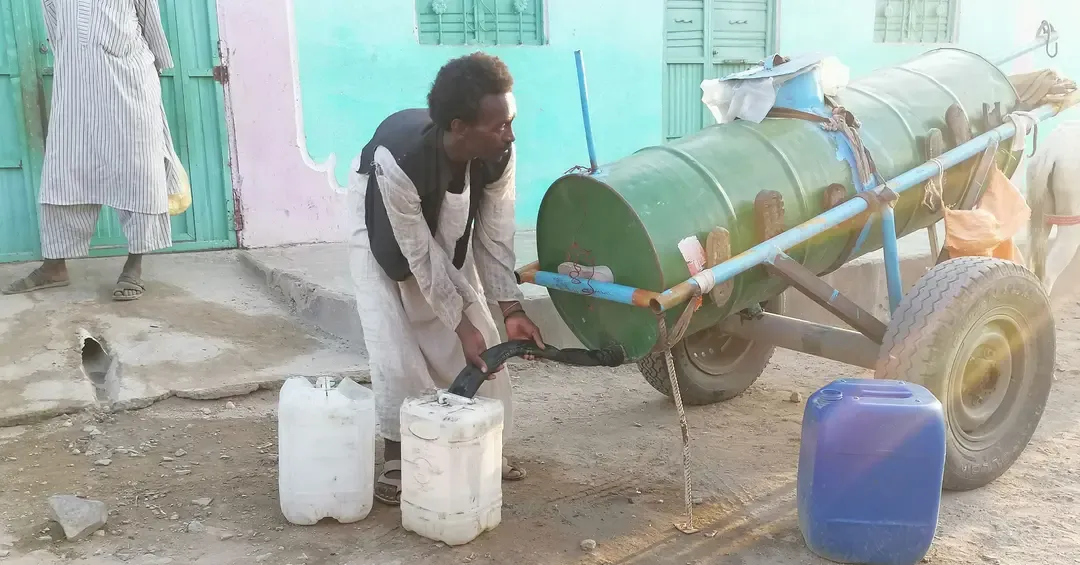
The waterman (Alsqa) sells water to citizens because there are no sources of water. Source: Arab World News Agency
We Must Never Lose Hope
Despite the difficulties, everyone hopes that this senseless war, which has driven people from their homes, safety and property, will stop and that every Sudanese citizen will return to the place where they belong. There is no place like home.
In Port Sudan, people were apprehensive because, frankly, no one felt safe after the militia's decision to expand their presence in all parts of Sudan. After recovering a little from the fatigue of travel, I noticed everyone's determination to follow their daily routine and strive to adapt to the volatile situation.
They went to work in the morning normally and lived the usual details of their day, despite the state of terror and the worsening crises with the wave of displacement that affected about 236,011 people between December and January 24, 2024.
I stayed in Port Sudan for a month and a half waiting for my visa to be approved. By the time I left, my sick grandmother and some of my relatives were waiting for the security conditions to stabilize, so they could safely return to their homes. My grandmother continued her treatment in Port Sudan, but she resisted being away from her home for too long and eventually used the same bumpy route to return to her home.
Recently, I had a phone conversation with her where she shared with me that the security conditions are precarious and everyone is fearful after the Rapid Support Forces entered Sinja due to its geographical proximity to Kosti. We hope that the war will end soon and the afflicted people can return to their homes.
